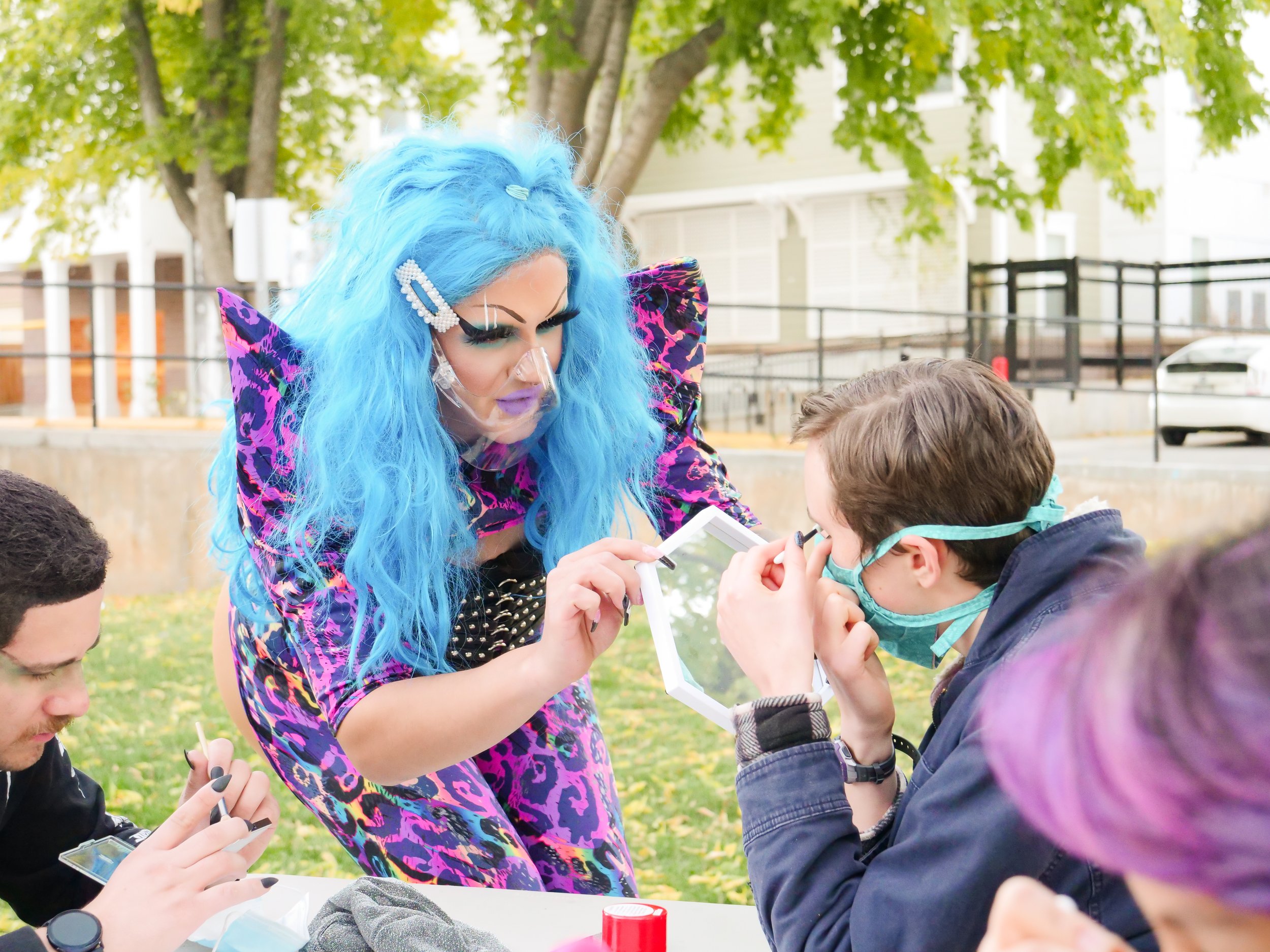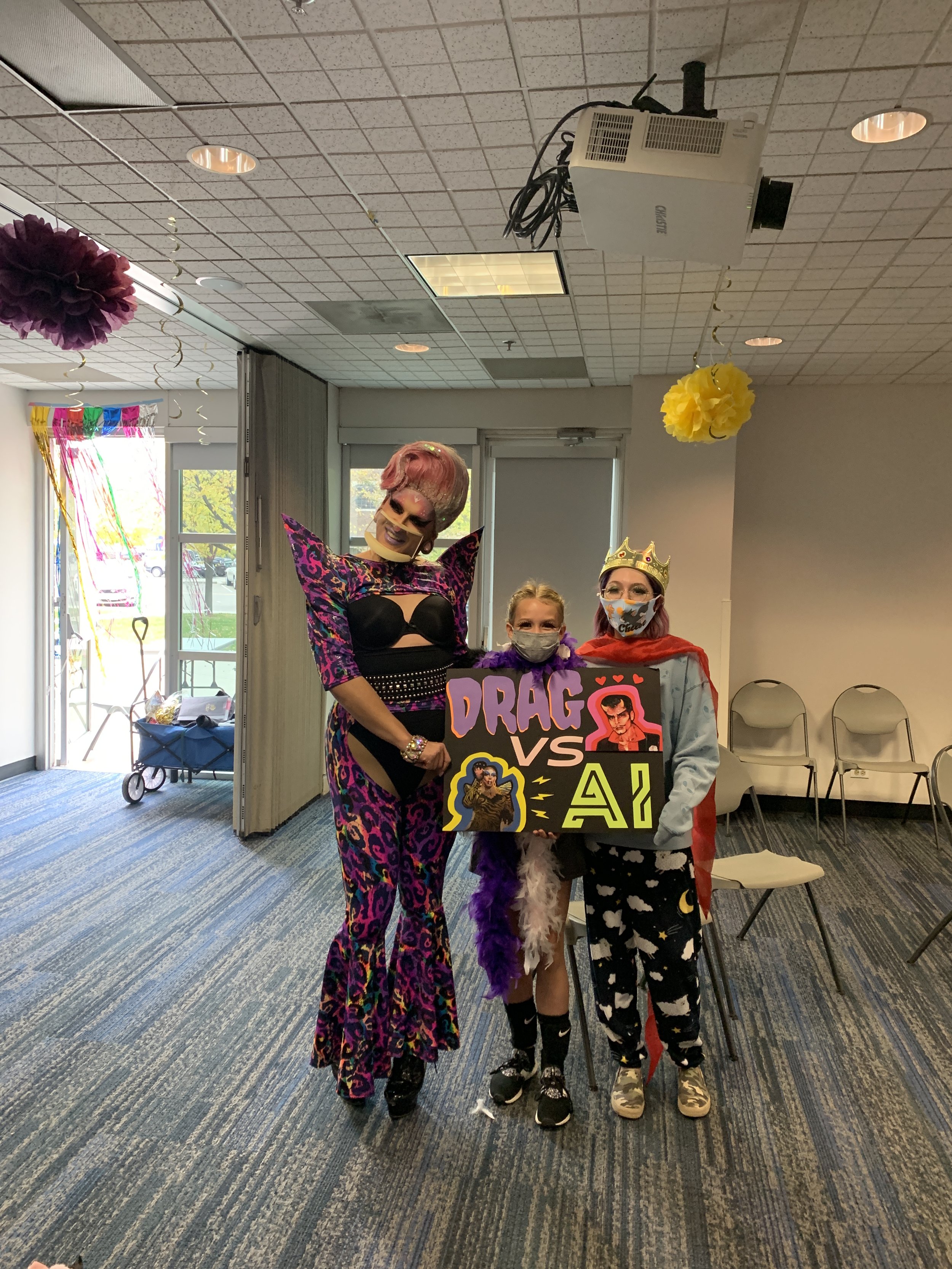Tinkering with AI Education
Team members: Janet Ruppert, Ricarose Roque
Artificial intelligence (AI)-powered technologies are all around us. As educational resources and research around AI emerge, they have largely focused on technical skills, with less attention to critical reflection skills and creative expression with AI. This project centers around a study of Drag vs. AI workshop enactments, and calls attention to less-explored aspects of AI education: tinkering and play, and queer values and pedagogies.
Despite the relevance of queer, trans*, and intersectional approaches to CS education around AI topics such as algorithmic bias and justice, these perspectives are lacking in research. How can queer values and pedagogies manifest and support learning around AI and CS more broadly?
Although tinkering has long been recognized as valuable for building technical and critical CS skills, and equitable outcomes in CS education, it has not yet been the focus of AI education resources and research. What can tinkering afford learning about AI from technical and critical perspectives? How can we support AI learning in a context that centers tinkering and play as modes of interaction?
We approach these questions by organizing and studying enactments of Drag vs AI, a workshop designed and publicized by the Algorithmic Justice League. Following this workshop curriculum, participants use hands-on makeup art as a medium for fooling, subverting, and refusing facial recognition technologies (FRTs). We are analyzing ethnographic data from workshops to



Embodied algorithmic tinkering: In one analysis, we identify embodied algorithmic tinkering, a method whereby participants developed hypotheses, experimented with changes, and intuited conclusions about the inner workings of an AI-powered FRT. Through their tinkering, workshop participants built strategic knowledge and algorithmic folklore around FRTs and manifested opportunities for counter-hegemonic AI learning. We argue for tinkering to be recognized as a valid AI methodology, practiced in everyday settings by nondominant youth, and valued in critical technological learning and design.
Drag pedagogies and playful queerness: In another analysis, we identify how playful queerness and drag pedagogies supported learning in workshop enactments. These pedagogies allowed us to create and cultivate a space for queer youth to safely explore serious technopolitical questions of gender identity perception in relation to surveillance technologies. We also argue that playful queerness in our workshops was an important, subversive mode of teaching and learning that welcomed different interpretations and cultural resources while disrupting patriarchal, heteronormative classroom paradigms. Finally, we identify opportunities for future critical CS learning from queer perspectives, such as reclamation.
Relevant publications
Ruppert, J., Velazquez-Ramos, D., Roque, R., & Shapiro, R.B. (2023) Taking play and tinkering seriously in AI education: Cases from Drag vs AI teen workshops. Learning, Media, and Technology. (pp. 1-15) (LINK)
Ruppert, J., Roque, R., & Shapiro, R. B. (2022, June 6-10). Opportunities and Challenges for Enacting Equity and Justice-centered CS Learning In “Drag vs. AI” Workshops [Poster Presentation]. The 16th International Conference of the Learning Sciences (ICLS) 2022, Virtual. (LINK)
Ruppert, J., Velazquez-Ramos, D., Roque, R., & Shapiro, B. (2022, May 23–26). Embodied Algorithmic Tinkering for Critical and Agentive Algorithmic Literacies in Drag vs AI Teen Workshops [Poster presentation]. The 7th IEEE STCBP Conference for Research on Equity and Sustained Participation in Engineering, Computing, and Technology (RESPECT 2022), Philadelphia, PA, United States